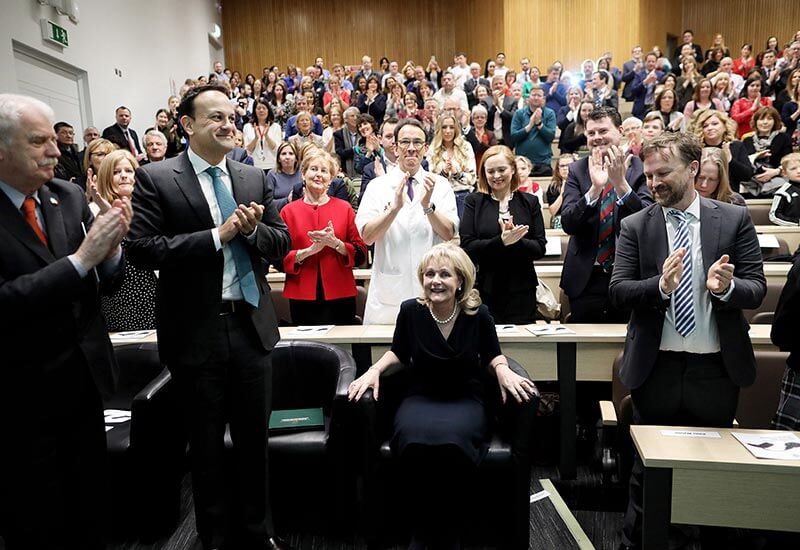The new National Hearing Implant and Research Centre (NHIRC) at Beaumont Hospital, Dublin will carry out ground-breaking research in cochlear implants and neurological disorders of the ear in children and adults.

The state-of-the-art centre will facilitate further research into cochlear implantation and neurotology for children and adults.
The NHIRC has been spearheaded by Professor Laura Viani, a pioneer in the field of cochlear implantation and neurotology. Professor Viani started the National Cochlear Implant Programme at Beaumont Hospital in 1995. Since then, the programme has become a full-fledged clinical department at the hospital, carrying out more than 200 cochlear implants every year.
The official opening of the NHIRC was the culmination of a long funding campaign led by Professor Viani, in close collaboration with the HSE. The NHIRC team, led by Professor Viani and ENT Consultant Surgeons, Mr Peter Walshe and Mr Fergal Glynn, currently collaborate with RCSI, Temple Street Children’s Hospital, Trinity College Dublin, Vanderbilt University in Tennessee and other institutions.
Speaking at the official opening, where he officiated, Taoiseach Leo Varadkar said: “The work undertaken at this new Research Centre will have a profound impact on the quality of life and outcomes of patients. It’s also a great example of the world-class health research being undertaken in Ireland. I’d like to pay special tribute to the pioneering work of Professor Viani, who has revolutionised how we treat severe hearing loss and ear disorders in Ireland. Through her work, thousands of lives will be transformed and people of all ages will be able to hear and communicate with those around them.”
Prof. Viani said, “The National Hearing Implant and Research Centre will carry out ground-breaking global research in cochlear implantation and other ear conditions. Ultimately, the work we carry out will lead to a better quality of life for the thousands of Irish people with severe to profound hearing loss and millions of others around the world.
“A cochlear implant means many things to different people, but all of them are significant and life-changing. For children, an implant creates an opportunity to hear, speak and interact with the world around them in a richer way. For young adults, it enables better education and job opportunities. For the elderly, at a life stage when deafness can be very isolating, it allows them to keep communicating with their family, friends and carers.
“On behalf of the National Cochlear Implant Department at Beaumont Hospital, it is a great pleasure to see the NHIRC project come to fruition after years of hard work and research. There is much we can do to improve cochlear implants and patient outcomes, and this centre provides a world-class base to work on achieving those goals.”
A leading Consultant Otolaryngologist/Neurotologist, Professor Viani is a Consultant Otolaryngologist/Neurotologist in Beaumont Hospital and Temple Street University Children’s Hospital, an Honorary Associate Professor of Surgery in RCSI and an Honorary Adjunct Professor in the School of Medicine, Trinity College Dublin.
She is the Founder and Director of the National Hearing Implant and Hearing Research Centre in Ireland – comprising Beaumont and Temple Street Hospitals, RCSI, and Trinity College Dublin – and established the National Cochlear Implant Programme in 1995.
She has been a trainer in otolaryngology for over 20 years and has lectured in Trinity College Dublin and RCSI. She has been a Council Member of RCSI for the past 17 years and isat present a member of the RCSI Court of Examiners.
Throughout her career, she has received numerous awards including the RAMI registrar prize (1986), the Research Fellowship RCSI (1986), the Augustine Mehigan Scholarship (1992), the TWJ Scholarship (1993), the Angel James first Prize London (2000), and the Graves Lecture Prize (2012).
Approximately 100 babies are born with hearing difficulties in Ireland each year;
It is estimated that there are over 32,000 people in Ireland who are deaf or hard-of-hearing.

